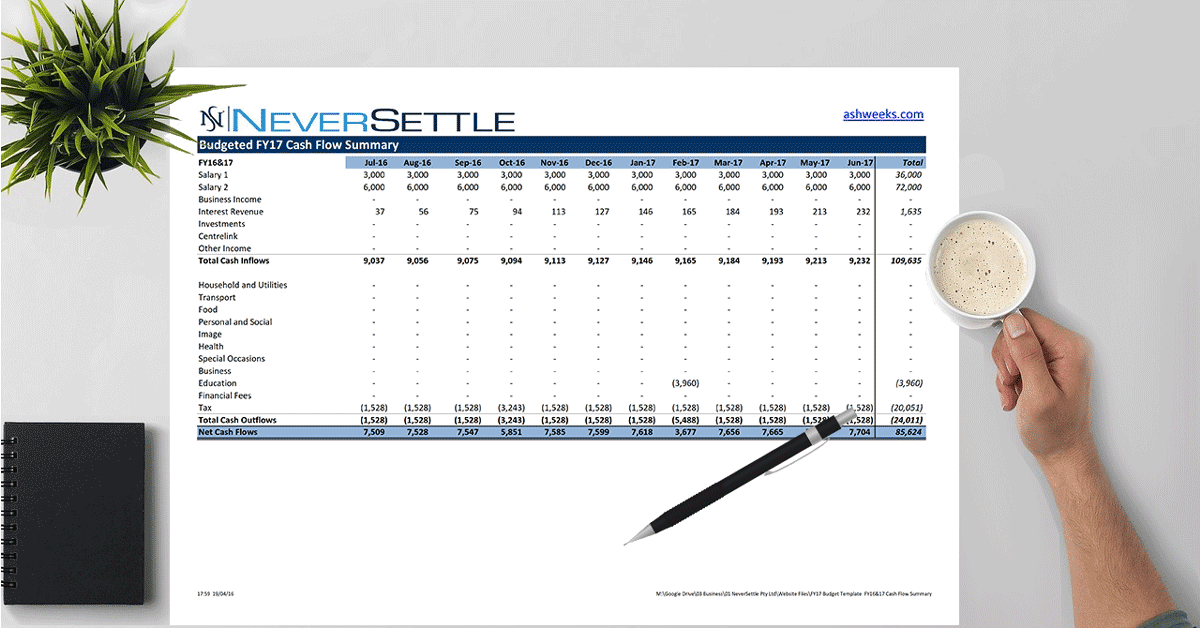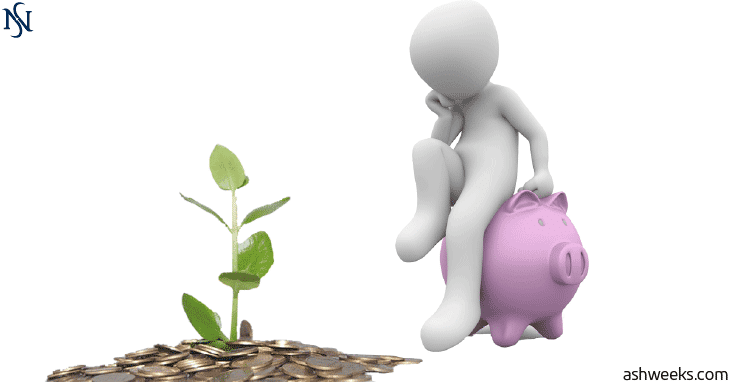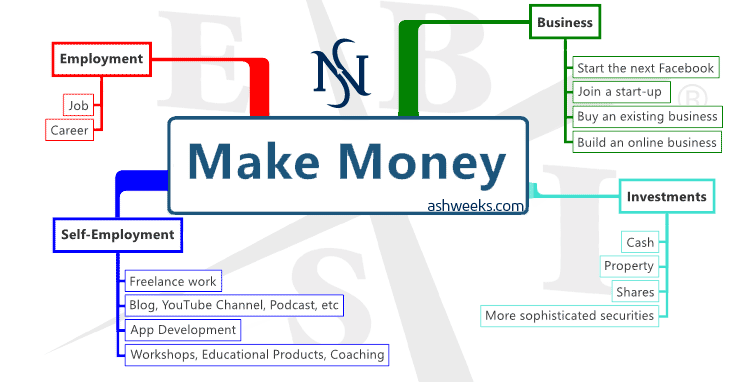Time and money are two of your most important resources. They are also finite, so if you aren’t using them in the best way possible, you’re wasting them.
One of the best ways to manage your money is with a budget. If you don’t know where your money comes from or where it is going, you’re not in control.
If you’re not controlling your money then your money is controlling you.
What You Can Do With a Budget
There are many things you can do with a budget, and I will cover some of them here.
As a preventative tool
- If you find yourself low on cash and you want to prevent yourself from being broke
- If you want to be prepared for a big expense like car registration
- To avoid going backwards: seeing your whole year’s cash inflows and outflows together lets you see if your bank account is going to slowly (or quickly) decrease or not
- If there is a hole in your spending habits where money is gushing out, a budget can help you find it and fix it
As a forecasting tool
- If you are saving for something in particular, like a holiday, car, or house, then a budget can tell you how much you need to save in order to have enough money by a certain date. It can also tell you how long it will take you to save up if you save only a fixed amount
- It can tell you what your bank balance should look like at a certain point in the future
- If your bank balance doesn’t drop below a certain number at all, it shouldn’t adversely affect your cash flows if you move part of that amount into investments
- If your bank balance isn’t increasing as much as you want it to in your budget, then you have more motivation to save
- If your bank balance is slowly decreasing, it will tell you at what date your money will run out
- If you have figured out what your ideal lifestyle is (or intermediate lifestyle stages), and how much it will cost to fund it, a budget allows you to work out exactly much much money you need to be bringing in
- It tells you how much money to make to keep current wealth levels and maintain your lifestyle
- This tells you how many hours you need to work in a week in order to meet your goals, or it tells you what income target to aim for if you are building a business to make yourself financially free
As a comparison tool
- You can compare certain expenses with each other and notice that, for example, if you drank less alcohol during the year you could go on an extra holiday without it affecting your finances
- You can compare the budget to what you actually end up spending which highlights any differences. If you’re spending more than you budgeted, find out why
As a financial planning tool
- If you forecast in years instead of months, you can start to see where your level of wealth could realistically be. By putting in expected salary increases and expected expense changes, you can see what your wealth growth should look like
- If your budget doesn’t say you’ll be as wealthy as you want to be by a certain age, what can you do to improve things?
- You can play around with numbers to figure out how quickly you can become financially free, or how much you will be worth by a certain age
- Your wealth and income movements affect your borrowing capacity and your ability to invest. Long term forecasts enable you to make better investment decisions
How to Create a Budget
- Use good software that can do all of the hard work for you
- Using a piece of paper to jot down the bigger items can give you a quick idea of what your cash flow should roughly be like, but you are likely to miss things and doing the maths is harder in your head than getting a computer to do it
- Using accounting software is usually only worth the trouble to learn if you run your own business. Personally, I run my businesses on Excel
-
Click Here to Claim Your FREE Budget Template
- Assess your net cash position
- How much money do you have in cash, in transaction accounts, in savings accounts?
- What about in assets that can be quickly converted into cash, such as shares?
- Do you have any credit card debt? What about personal loans, car loans, or home loans?
- Assess your income and expenses
- Income from work, business, investments, Centrelink/Government
- Expenses from various categories, including Household & Utilities, Transport, Food, Personal Expenses, Social Expenses, Image, Health, Special Occasions, Business, Education, Financial Fees, and Tax
- Input everything into your budget spreadsheet
- Review your budget
- Use your budget to understand the bigger picture of where you money is coming from and where it is going
- Look at the list above regarding what you can use your budget for, and use it in as many ways as you can benefit from
- Periodically review your budget against your actual cash flows
- If the numbers start to differ significantly, update your budget to reflect any new changes or change your spending and earning habits to fix the change
If you missed the link above, you can claim your free budget template below. It is a great place to start and is already pre-filled with categories and expense items. It even estimates your tax payable on your salary if you are Australian:




